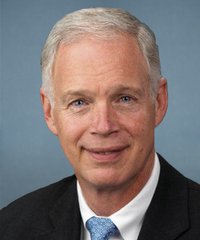
Both of Ron’s parents were born and raised on farms. Their work ethic and small-town values were naturally passed along to their own children. As a result, Ron has worked hard all his life. As a boy, he mowed lawns, shoveled snow, delivered papers, and caddied for a few extra bucks. At the age of 15, he obtained his first tax-paying job as a dishwasher in a Walgreens grill. He rose through the ranks as a soda jerk, fry cook, and finally night manager before reaching the age of 16.
He gained early acceptance to the University of Minnesota, so he skipped his senior year of High School and worked full time while obtaining his degree in business and accounting. In 1977, after graduating with a BSB-Accounting degree, he married his wife Jane, and started working as an accountant at Jostens. He also continued his education by enrolling in an MBA night program.
Agriculture has a strong heritage in Wisconsin as one of the driving forces behind our state’s economy. In order to keep the sector growing, Senator Johnson has supported initiatives that will expand new and current markets to share our great made-in-Wisconsin products. The Wisconsin agriculture industry should have the ability to provide products to and compete in both domestic and international markets, and Senator Johnson has worked to ensure that Wisconsin products are not unfairly excluded in local programs or abroad.
Some of Senator Johnson’s efforts include introducing the CURD Act (Codifying Useful Regulatory Definitions) to establish an official definition of “natural cheese,” under the FDA’s standards of identity, consistent with longstanding cheese-making processes. The bill passed the Senate in December 2018. He also to allow flavored and unflavored 2 percent and whole milk to be served in the National School Lunch Program.
Senator Johnson cosponsored the Family Farmer Relief Act to help more family farms seek relief by raising the Chapter 12 operating debt cap to $10 million. President Trump signed the bill into law on August 23, 2019.
Senator Johnson’s efforts helped lead to a significant change in the WIC supplemental nutrition program. In 2014, USDA updated the list of allowable foods to include white potatoes. As a way of ensuring that schools can more effectively use their program dollars, Senator Johnson introduced the Fruit and Vegetable Access for Children Act. This bill will allow schools the options of serving fresh along with frozen, canned and dried fruits and vegetables in the federally funded school snack program. Broader access to healthy foods for children is not only good for families — it helps the Wisconsin agriculture sector as well.
Even though it continues to flourish, Wisconsin agriculture also faces threats. As the gray wolf has recovered, northern Wisconsin farmers, ranchers, and land owners have suffered the consequences of the growing wolf population, including deadly attacks on livestock. Senator Johnson has led the legislative effort since 2015 to remove the recovered gray wolf from the Endangered Species list and return management to state wildlife experts in the western Great Lakes (Wisconsin, Minnesota, and Michigan). On October 29, 2020, the Department of Interior announced a final rule to delist the gray wolf in the lower 48 states.
Through his chairmanship of the Senate Homeland Security and Government Affairs Committee, Senator Johnson called a hearing to examine the threat avian influenza poses to both our economy, because of its potential impact on the poultry industry, and in the long term to public health.
Senator Johnson has sponsored bills and held a hearing to highlight how certain regulations from the Environmental Protection Agency threaten farmers’ ability to work their own land. It is important to eliminate both international and federal barriers that can hinder Wisconsin’s agricultural economy, including by protecting common cheese and meat names in our international trade agreements, eliminating tariffs and reducing the chance for retaliatory tariffs, and by including a variety of nutritional options in our National School Lunch Program and WIC.
Senator Johnson will continue to promote common-sense policies that ease regulation and promote growth within Wisconsin’s agriculture sector.